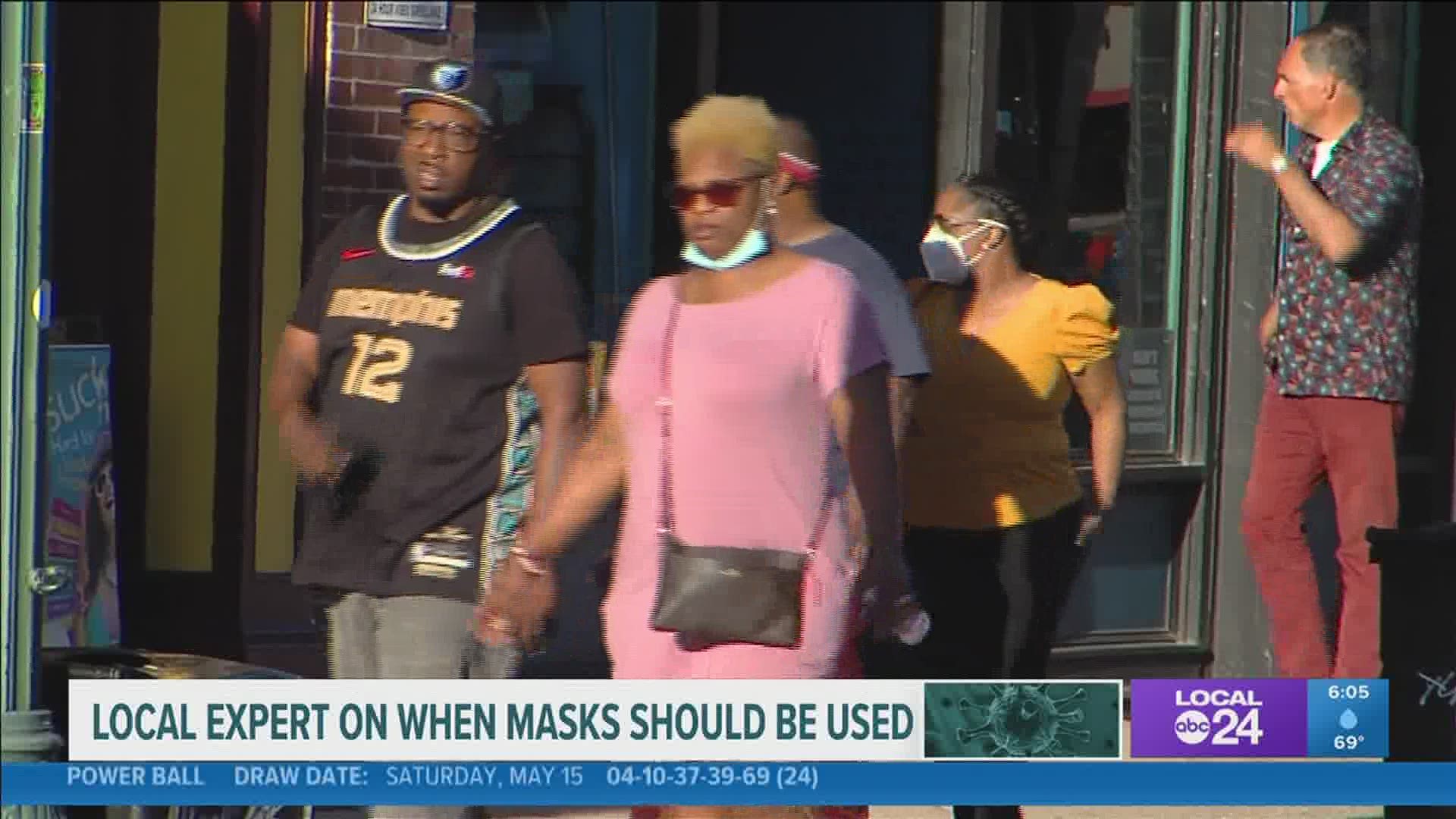MEMPHIS, Tenn. — Last week, the Centers for Disease Control and Prevention eased mask regulations for those who are fully vaccinated, but one Memphis doctor says there are some exceptions. According to Baptist Hospital infectious disease specialist Dr. Steve Threlkeld, fully vaccinated people with a weakened immune system, those living with someone who has a weakened immune system, and healthcare professionals should keep a mask close.
“For vaccinated people with those few exceptions that I mentioned, it's probably safe for them to be anywhere they want to be masked or not. Again, I think using common sense, if you're in a crowded situation indoors with poor ventilation it probably is a reasonable thing to wear a mask, because we know the vaccines are excellent but they are not perfect,” Dr. Threlkeld explained.
Dr. Threlkeld added with summer approaching, all unvaccinated people should continue to wear a mask indoors and outdoors when close to others. He advised those who are fully vaccinated to also keep a mask handy at crowded events like concerts or festivals.
FROM THE CDC:
Choosing Safer Activities
- If you are fully vaccinated, you can resume activities that you did prior to the pandemic.
- Fully vaccinated people can resume activities without wearing a mask or physically distancing, except where required by federal, state, local, tribal, or territorial laws, rules, and regulations, including local business and workplace guidance.
- If you haven’t been vaccinated yet, find a vaccine.
COVID-19 vaccines are effective at protecting you from getting sick. Based on what we know about COVID-19 vaccines, people who have been fully vaccinated can start to do some things that they had stopped doing because of the pandemic.
These recommendations can help you make decisions about daily activities after you are fully vaccinated. They are not intended for healthcare settings.
Have You Been Fully Vaccinated?
In general, people are considered fully vaccinated: ±
- 2 weeks after their second dose in a 2-dose series, such as the Pfizer or Moderna vaccines, or
- 2 weeks after a single-dose vaccine, such as Johnson & Johnson’s Janssen vaccine
If you don’t meet these requirements, regardless of your age, you are NOT fully vaccinated. Keep taking all precautions until you are fully vaccinated.
What You Can Start to Do
If you’ve been fully vaccinated:
- You can resume activities that you did prior to the pandemic.
- You can resume activities without wearing a mask or staying 6 feet apart, except where required by federal, state, local, tribal, or territorial laws, rules, and regulations, including local business and workplace guidance.
- If you travel in the United States, you do not need to get tested before or after travel or self-quarantine after travel.
- You need to pay close attention to the situation at your international destinationbefore traveling outside the United States.
- You do NOT need to get tested before leaving the United States unless your destination requires it.
- You still need to show a negative test result or documentation of recovery from COVID-19 before boarding an international flight to the United States.
- You should still get tested 3-5 days after international travel.
- You do NOT need to self-quarantine after arriving in the United States.
- If you’ve been around someone who has COVID-19, you do not need to stay away from others or get tested unless you have symptoms.
- However, if you live or work in a correctional or detention facility or a homeless shelter and are around someone who has COVID-19, you should still get tested, even if you don’t have symptoms.

